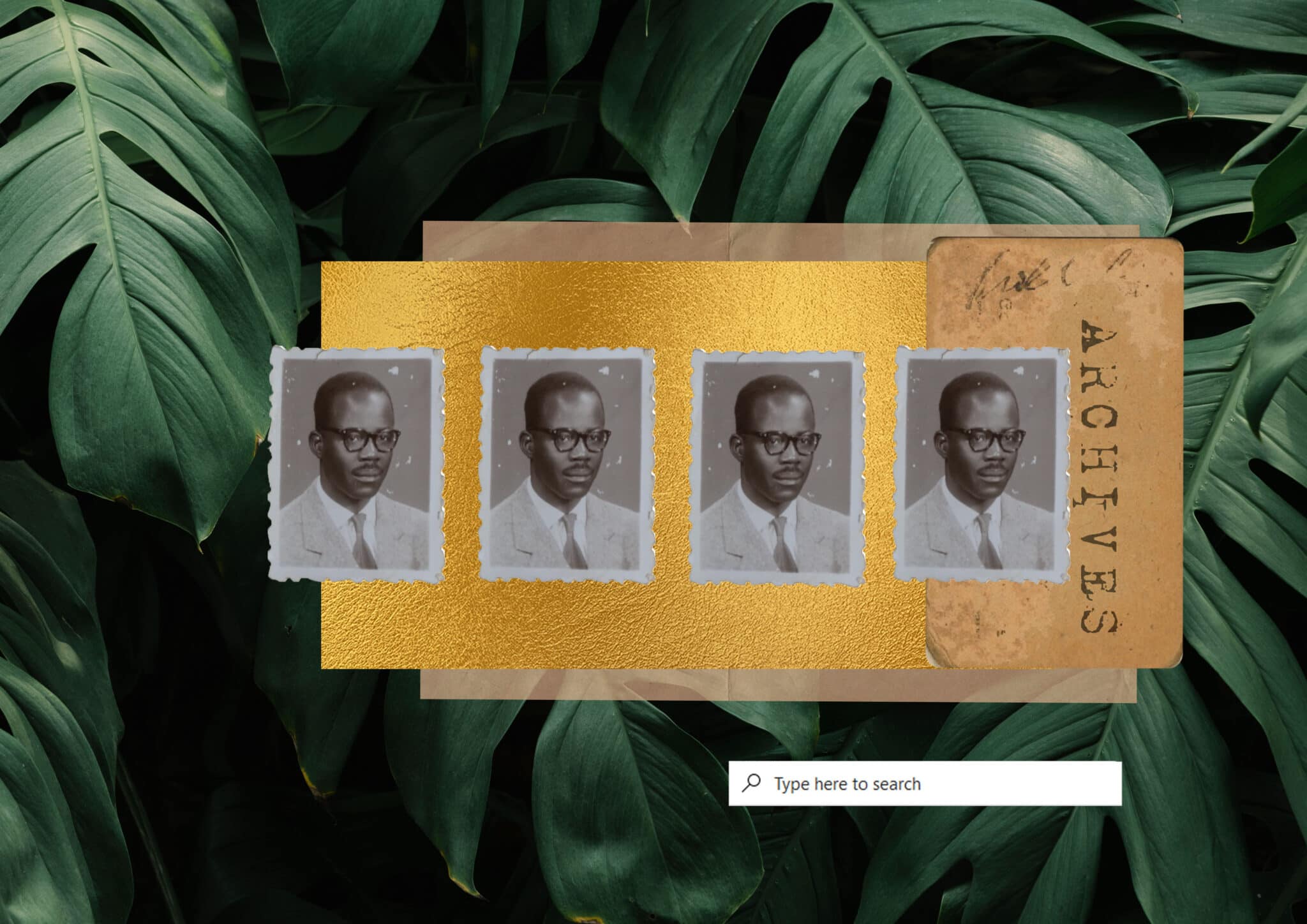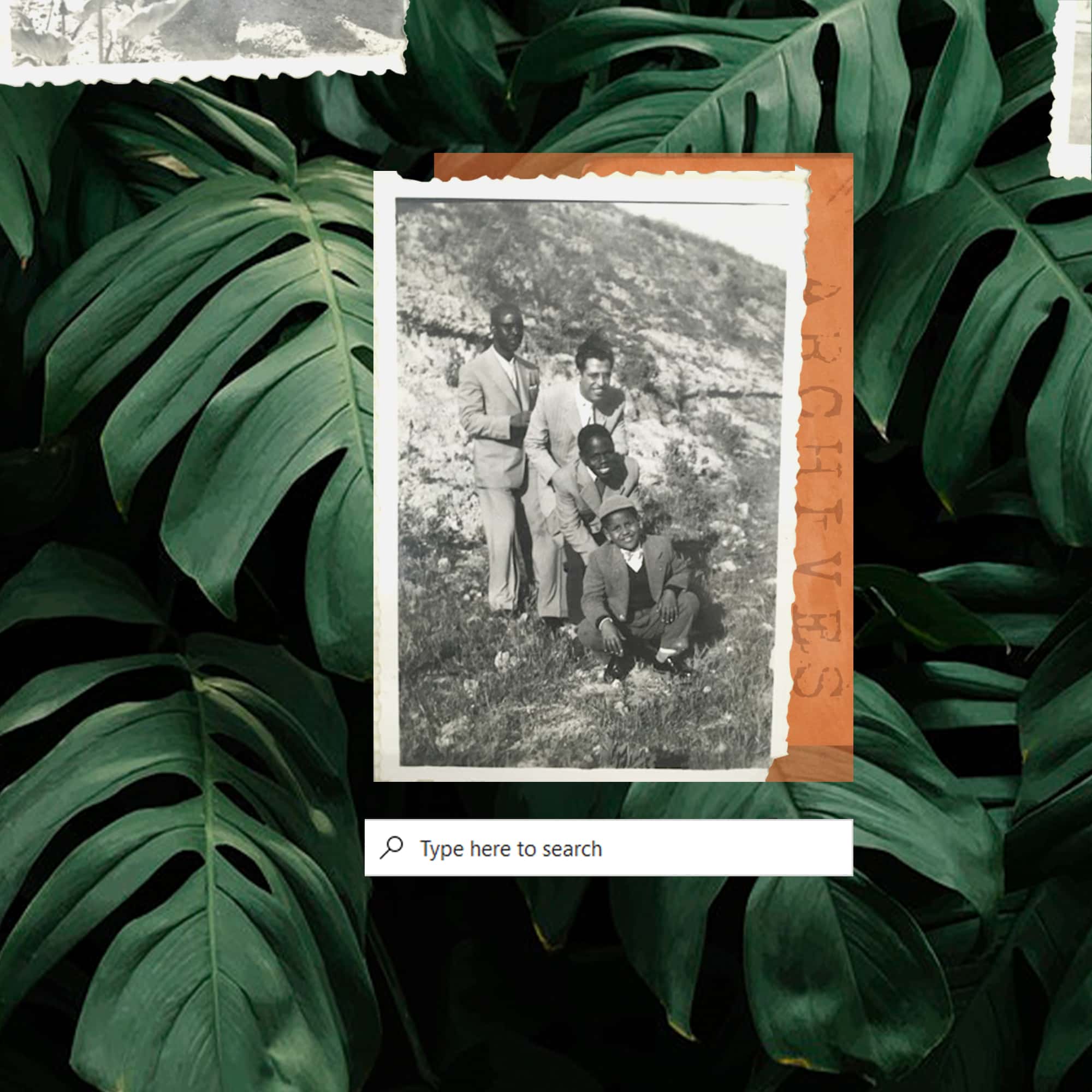
Searching (yourself) in the archive
Ever since she got her hands on a camera, Sofia Yala has been interested in telling her family’s story. The Portuguese photographer with Angolan roots has revisited, altered, and reconstructed her most intimate archive to discuss something more significant: African migrants in Europe, their descendants, the complex reality of racialized bodies, and the possibilities of creating from changing forms of freedom.
By Marcela Vallejo
A radio sounds that are not tuned, constant static noise is heard. There is no signal. Sometimes the search does not end.
For the Portuguese photographer Sofia Yala, this image refers to the constant search for justification and approval experienced by racialized people. The radio with that harsh sound was part of There is NO SIGNAL, an installation that included a series of photographs and a mirror. “It often happens with racialized people who think they must categorize themselves. Whether the person is a black person or knows how to dance, they have to always fall into a category and always need to justify themselves. I spent a large part of my life trying to justify myself. This body of work speaks to the constant search for people and starts in the family archive.”
Sofia has been rummaging through and intervening in her family albums for several years. This exercise taught her stories about her family and its origins. The search led her to a public archive in Portugal with many documents and images of the former Polícia Internacional e de Defesa do Estado (PIDE). Among the images, she found a profile of her grandfather, who was treated as a criminal. For her, it was shocking: for her family, her grandfather was a hero who had fought, together with his union in a country that was not yet independent, for the rights of Portuguese and Angolan merchant marine workers.
“Photography is a dangerous medium,” Sofia assures us. But its meaning can be contested, disputed, and questioned. “These stories make me think about photography, although now everything is changing thanks to artificial intelligence, leading us to rethink the limits of reality. The image challenges us and challenges the discriminatory ways of presenting people. My interest is to dig a little and sabotage the notions of reality, to understand that the archive is not something left in the past and that we should not alter. On the contrary, it can always be manipulated, and we all have the right to do so.”
Fragments of my journey. Taken at an installation. Sofía Yala
No Signal begins with the mug shot of her grandfather and continues with photos of herself, accompanied by the radio with no signal and a mirror. “This work focuses on the search for a racialized person. It starts with that image of my grandfather as a criminal and continues with that search of trying to live outside of categorization. Then, the person is constantly left in that void, or the person gives up, breaks down the barriers, and decides to build their own identity. Which is always difficult.”
The archive is a starting point. Sofia looks for things she can’t find in the seemingly universal Google search engine. She is interested in her family’s stories, which can be extrapolated to those of other migrants and people belonging to the African diaspora. She created Type Here to Search, a series of collages on that basis. In some images, a search bar appears, like Microsoft’s, which invites you to type in the question you want to solve.
“The bodies that migrate or those that are under some regime always try to present themselves in a ‘civilized’ way; they try to show what the states, what the regimes want to see. So, we often see a performance in the portraits, but not the reality.”
She wanted to understand the trajectories of her family, composed of Angolan migrants who left the country before and after independence. Some stayed, others never returned. Sofia was born in Portugal, surrounded by stories and with access to an archive that she knows not all migrants have. Her searches in the archives have led her to understand that when it comes to institutions, they are designed on an elitist basis: made for a few researchers to have access, with histories that represent few sectors of the population.
Where is the story of a family like Sofia’s? Who tells those stories? In this case, she has decided to appropriate images, regain authority over her family stories and construct speculative histories of the past, present, and future.
Her work also questions the images themselves. For Sofia, “the bodies that migrate or those under some regime always try to present themselves in a ‘civilized’ way. They try to show what the states and the regimes want to see. So, we often see a performance in the portraits but not the reality. Many people tried to liberate themselves through music or food, but the images are usually a facade that protects.”
At the same time, those facades do not guarantee respect or full recognition. Sofia has a project whose name is very instigating: The Body as an Archive. In it, she uses digital collages to mix archives, memory, and her imaginaries. She uses images from migration and identification documents over self-portraits. Generally, these are images of her at the limits of domestic spaces: the entrance and exit doors, garden fences, and house walls. Her body transits or is seen stopped.
“I like to play with parallels. The archive allows me to bring to the present issues that were and are relevant.” The Body as an Archive is also the recognition that there were generations ago that had a series of restrictions that Sofia does not have now. The bodies of her parents and grandparents lived through historical moments that forced them to shape themselves in very rapid and violent ways. And at the same time, she now experiences others that her ancestors did not.
“Mine is a body in the world. I’m not interested in romanticizing diaspora, migration, or ‘the return,'” says Sofia. “We are all the result of alterations in the historic journey.”
